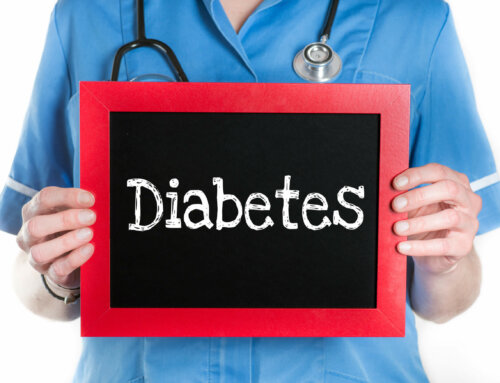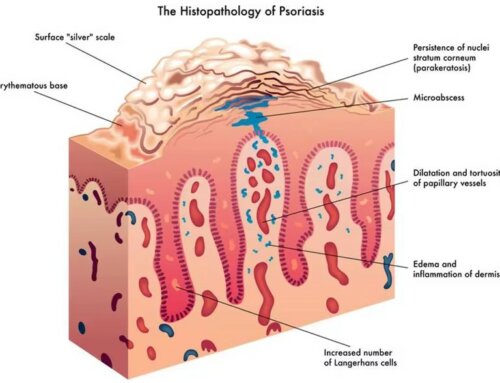Most people with diabetes are familiar with several complications caused by uncontrolled blood sugars over an extended period of time. Complications like kidney disease, neuropathy, gingivitis – periodontal disease, retinopathy, and heart disease can be attributed to chronic elevated blood sugars.
Research, both current and in the past, have shown a connection between diabetes and other medical conditions. I will explore some of them, but realize this may not be a complete list. This information is to make you more aware of other possible problems you may be at risk for because of diabetes. Please talk to your healthcare provider about your specific situation and need for additional screening.
- Thyroid disease – The thyroid gland is part of the endocrine system as is the pancreas; it helps the body burn energy. People with diabetes have a higher incidence of thyroid conditions. 30% of people with type 1 diabetes have thyroid disease; thyroid disease is considered an autoimmune problem as is type 1 diabetes. When one organ has autoimmune problems, the other organs are more at risk. There is also a higher prevalence of hypothyroidism or low thyroid in people with type 2 diabetes. Abnormal thyroid function has a strong influence on blood sugar control. Hypothyroidism can have an effect on lipids by raising LDL and triglycerides and further raising the risk of heart disease and cardiac arrhythmias. The thyroid is tested with blood work and should be screened routinely, especially for females who are at a higher risk. Generally, testing the TSH or thyroid stimulating hormone along with a T4 is ordered.
- NASH-Nonalcoholic steatohepatitis – The liver becomes inflamed and damaged with fat deposits inside. The liver may resemble an alcoholic liver even when no alcohol is involved. It presents without symptoms at the beginning and can lead to permanent scarring and cirrhosis of the liver. NASH is commonly seen in the obese and present in 75% of people with type 2 diabetes; they also have insulin resistance and elevated triglycerides. Most times, it is a benign condition but if your liver enzymes (ALT/AST) become elevated, this should be checked by your physician. Progression can take years and severe fibrosis can occur with reduced liver function. One should try for prevention by including managing weight, no alcohol, more exercise and fewer medications filtered by the liver.
- Depression – Studies have shown that having diabetes doubles your risk of depression, especially as your complications increase. It could be due to chronic stress, metabolic changes or a predisposition to depression. Depression is underdiagnosed in this country and could lead to serious consequences. Symptoms include sadness, hopelessness, helplessness, decreased energy, decreased concentration, a pessimistic attitude, changes in sleep patterns or not managing your weight, and possible suicidal thoughts. There are written scales and surveys to test for depression and multiple treatments such as talk therapy, support groups, and medication if it is diagnosed.
- Glaucoma / Cataracts / Detached retina – There is a 40% higher risk of glaucoma for people with diabetes; this will increase with your age and the length you have diabetes .It is related to high eye pressure which can limit the blood supply to the eye and cause blindness. It is treated with eye drops or surgery. Remember, to always tell your optometrist or ophthalmologist that you have diabetes, so they can do a complete exam. The probability of having cataracts is 60% higher in people with diabetes at an earlier age and faster development. This makes the lens foggy and decreases your vision. Wearing sunglasses outdoors and in the car is the best preventative measure you can take. Retinal eye issues are relevant to diabetes and if not monitored, retinal detachments can be more common.
- Cancer – Fat is like an endocrine gland and too much has been noted to increase inflammation and possible risk of cancer. There is recent evidence that diabetes can raise your risk of liver, pancreas, endometrial, breast, bladder, and colorectal cancer. One theory is that extra sugar can promote cell growth. High insulin levels which people with type 2 diabetes can have also increases the risk. More research is being done on this topic now. Eating a balanced diet with fruits and vegetables, not smoking, exercising and keeping your weight down are all preventative measures. Talk to your physician about possible screenings.
These are some examples of what you may be more at risk for because of diabetes. Your healthcare provider can help decide which tests need to be done. By concentrating on preventative measures, you may never have to deal with them at all. Preventive health is the best present we can give ourselves!
NOTE: Consult your doctor first to make sure my recommendations fit your special health needs.







Leave A Comment